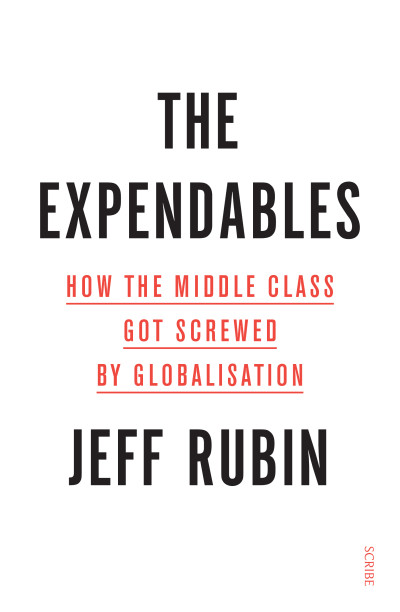‘Coloured with gripping battlefield experience, Kilcullen's book changes the way we think about war.’
CityWest News
‘For a wider perspective on the lessons drawn over the past seven years of the ‘war on terror’, the reader can do no better than turn to Mr Kilcullen’s excellent book. The Accidental Guerrilla has an anthropologist’s sense of social dynamics and a reporter’s eye for telling detail. If T.E. Lawrence evoked the means of waging irregular warfare in his 1926 classic, Seven Pillars of Wisdom, Mr Kilcullen describes the practitioner’s art of combating insurgents. For instance, his account of how the Americans use soft and hard power to pacify parts of eastern Afghanistan — combining road-building with focused operations — should be compulsory reading in military academies on both sides of the Atlantic.’
Economist
‘This book should be required reading for every American soldier, as well as anyone involved in the war on terror. Kilcullen's central concept of the 'accidental guerrilla' is brilliant and the policy prescriptions that flow from it important. And that's not all; the book has many more insights drawn from various battlefields.’
Fareed Zakaria, author of The Post-American World
‘David Kilcullen's Accidental Guerilla is a richly reported and well written account of the new way of war of the 21st century; how those ‘small wars’ will differ from previous conflicts and what they have in common with past insurgencies and counterinsurgencies. Analytically very sharp and also an engrossing read, Kilcullen's book is destined to become a classic study of warfare in our new century.’
Peter Bergen, author of Holy War, Inc. and The Osama bin Laden I Know and CNN's national security analyst
‘This lucid and compelling book describes the challenges in contemporary warfare as counterinsurgency and counterterrorism merge, and conventional conflicts recede. It is an important primer for the decade.’
Philip Bobbitt, author of Terror and Consent
‘David Kilcullen, man of action and man of ideas, has produced a rare — and indispensible — guide to understanding and winning the so-called ‘war on terror’ by combining ideas of military theory with those of culture and tradition among tribal peoples.’
Professor Akbar Ahmed, Chair of Islamic Studies, American University, Washington DC
‘Kilcullen's compelling argument merits wide attention.’ STARRED REVIEW
Publishers Weekly
‘There are few authorities on this growing form of warfare, but Kilcullen is one of the best. One for those who wish to form their own opinions of such conflicts.’
Piers Ackerman, The Daily Telegraph
‘Kilcullen skillfully interprets the future of counterinsurgency, the proper use of military force and what we must learn from our losses and mistakes … After reading The Accidental Guerrilla, one is left to wonder why the Pentagon did not listen to his sage advice back in 2003, instead of that of all those cheery optimists who predicted the Iraqis would greet the American forces with flowers.’
The New York Times
‘Kilcullen’s heroes are soldier-intellectuals, both real (T.E. Lawrence) and fictional (Robert Jordan, the protagonist of Hemingway’s For Whom the Bell Tolls). On his bookshelves, alongside monographs by social scientists such as Gluckman and Evans-Pritchard, is a knife that he took from a militiaman he had just ambushed in East Timor. ‘If I were a Muslim, I’d probably be a jihadist,’ Kilcullen said as we sat in his office. ‘The thing that drives these guys — a sense of adventure, wanting to be part of the movement, wanting to be in the big movement of history that’s happening now — that’s the same thing that drives me, you know?’.’
The New Yorker
‘[The Prime Minister] has also been impressed by the work of David Kilcullen, a former Australian army officer and academic anthropologist who now works for the US State Department … Kilcullen’s core belief is that the war on terror is better described as a ‘global counter-insurgency’: he refers to the ‘information battlefield’ but insists that the West’s strategy must be radically localised; each region, each village, needs a different counter-terrorist tactic … The Kilcullen Doctrine on winning ‘hearts and minds’ is based not on making local people feel affection for you, but on persuading them that you can protect them better than the enemy.’
The Spectator
‘[T]his is an important book. Those with the unenviable task of dealing with the mess of today's Afghanistan and Pakistan will ignore it at their peril.’
The Weekend Australian
The author employs personal experience and case studies of Afghanistan, Iraq, Indonesia, Thailand, East Timor, and Pakistan in this fascinating study. The critique of US involvement in Iraq, the description of the evolution and implementation of the "surge," the analysis of Afghanistan and Pakistan, and the primer on counterinsurgency strategies are all illuminating. Students, scholars, policy makers, and the larger public should take the book very seriously because the hope to avoid future wasteful ventures begins here.
Choice
‘Kilcullen's influence on how the US military thought about counterinsurgency campaigning cannot be overstated.’
Thomas E. Ricks, author of The Gamble and Fiasco
‘There are some standard texts on [counterinsurgency]. The Accidental Guerrilla is sure to become one.’
The Wall Street Journal
‘This book is essential … Kilcullen skillfully interprets the future of counterinsurgency, the proper use of military force and what we must learn from our losses and mistakes. After reading The Accidental Guerrilla, one is left to wonder why the Pentagon did not listen to his sage advice back in 2003.’
New York Times Book Review








